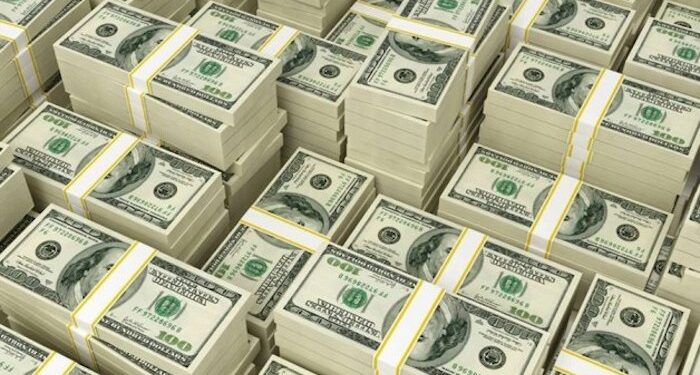In a significant development for Nigeria’s economy, the nation’s external reserves recorded a net increase of over $260 million within a single week, signaling a cautious but optimistic improvement in the country’s foreign exchange position.
According to the latest data from the Central Bank of Nigeria (CBN), the reserves, which stood at $38.12 billion on May 9, 2025, climbed steadily to $38.38 billion by May 16, 2025, marking a two-month high and the strongest level since early March 2025.
This uptick follows a challenging period characterized by persistent pressures from external debt repayments, declining oil production, and volatile foreign exchange demand, which had eroded reserves by approximately $2.62 billion over the first four months of the year.
In a significant development for Nigeria’s economy, the nation’s external reserves recorded a net increase of over $260 million within a single week, signaling a cautious but optimistic improvement in the country’s foreign exchange position.
According to the latest data from the Central Bank of Nigeria (CBN), the reserves, which stood at $38.12 billion on May 9, 2025, climbed steadily to $38.38 billion by May 16, 2025, marking a two-month high and the strongest level since early March 2025.
This uptick follows a challenging period characterized by persistent pressures from external debt repayments, declining oil production, and volatile foreign exchange demand, which had eroded reserves by approximately $2.62 billion over the first four months of the year.
The significance of this recovery cannot be overstated, particularly in light of the steep declines observed earlier in the year. In January 2025, Nigeria’s reserves peaked at $40.15 billion on January 20, buoyed by optimism surrounding early-year oil revenues and remittances.
However, this high was short-lived, as reserves shed over $1.3 billion by February 18, dropping to $38.82 billion. The downward trend persisted into March, with reserves falling to $38.31 billion by March 28, a loss of over $260 million in less than two weeks.
By April, reserves languished in the $37 billion range, hitting a low of $37.79 billion on April 25 before a slight recovery to $38.13 billion on April 4. The volatility underscored the structural challenges facing Nigeria’s economy, including its heavy reliance on oil exports and exposure to global market fluctuations.
The CBN’s recent interventions appear to be addressing these challenges head-on. In addition to market liberalization, the Federal Government has introduced policies to boost local production and reduce reliance on imported goods, which has alleviated pressure on foreign exchange demand.
These measures have also helped mitigate the pass-through effects of higher exchange rates on domestic prices, a critical factor in a country where inflation remains a persistent concern. Cardoso emphasized the importance of sustaining these reforms, noting that their continued implementation is essential for further economic stabilization.
Economic analysts have welcomed the reserve increase but caution that the gains are modest in the context of Nigeria’s broader fiscal challenges. The $260 million uptick, while encouraging, pales in comparison to the $2.62 billion lost earlier in the year, and the reserves remain below the $40 billion threshold seen in January.
Experts argue that complementary efforts from fiscal authorities are crucial to sustaining this momentum. Investments in non-oil sectors, improvements in infrastructure, and policies to attract foreign direct investment could help diversify Nigeria’s revenue base and reduce its vulnerability to external shocks.
The stabilization of the naira, coupled with the reserve increase, suggests that the CBN’s reforms are beginning to bear fruit. However, the road to sustained economic recovery remains fraught with challenges. Nigeria’s external debt obligations, coupled with uncertainties in global oil markets, continue to pose risks to reserve accumulation.
Moreover, the need for greater transparency and coordination between monetary and fiscal policies cannot be overstated. As Cardoso noted during the MPC briefing, “Given the relative stability in the foreign exchange market, members urge the bank to sustain the implementation of the ongoing reforms to further boost the economy.”
WHAT YOU SHOULD KNOW
As Nigeria navigates this delicate economic moment, the modest reserve increase offers a glimmer of hope. However, sustained progress will depend on the government’s ability to address structural vulnerabilities and maintain the momentum of its reforms. The CBN’s efforts appear to be laying a foundation for stability, but the path forward requires vigilance and strategic coordination.
ALSO READ TOP STORIES FROM VERILY NEWS


















